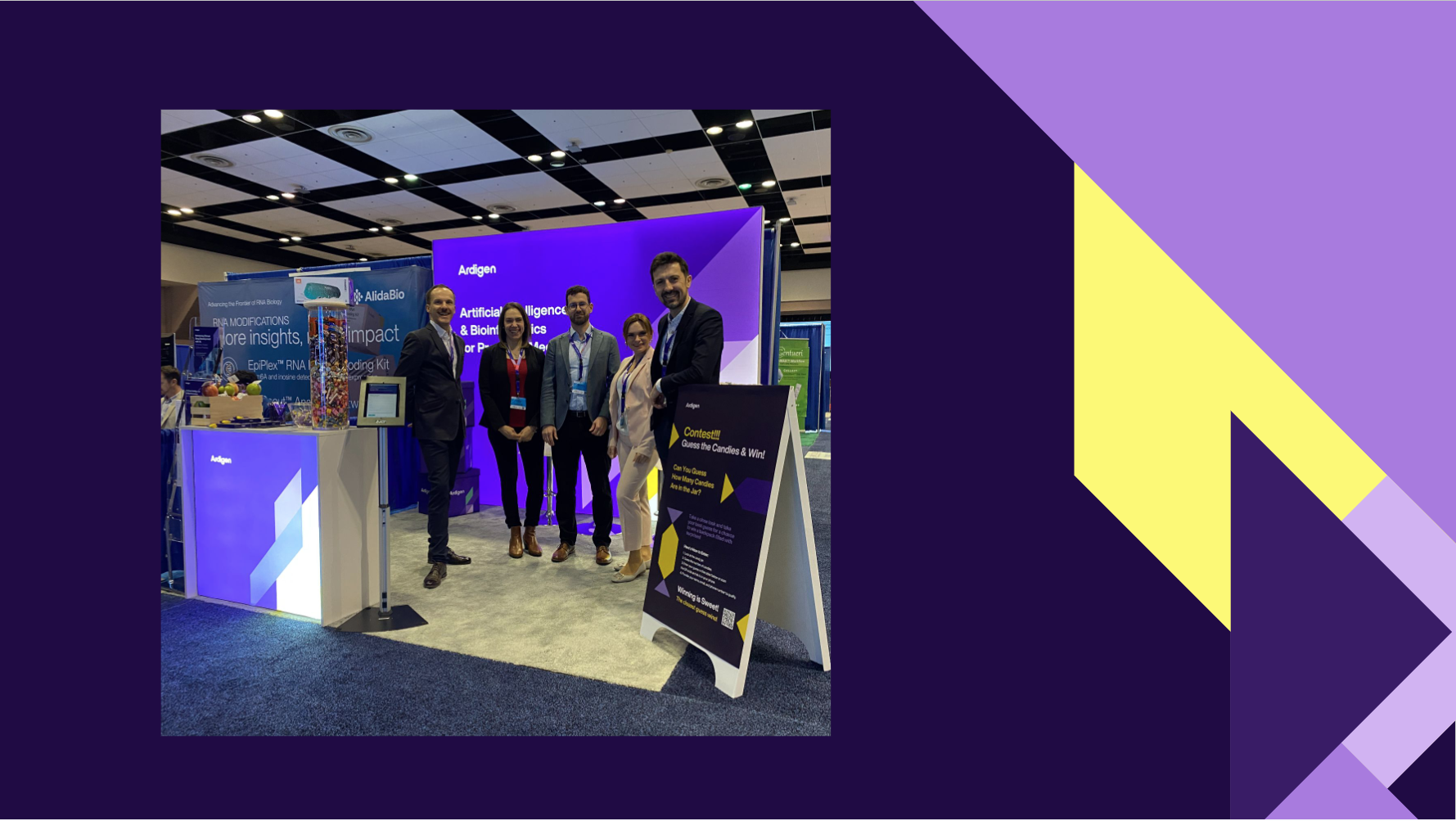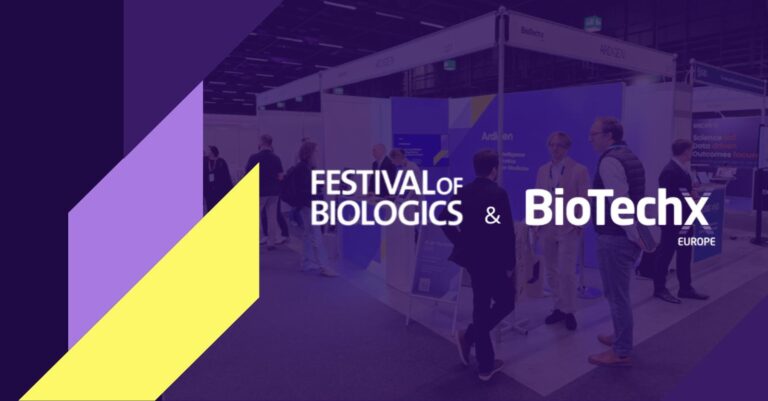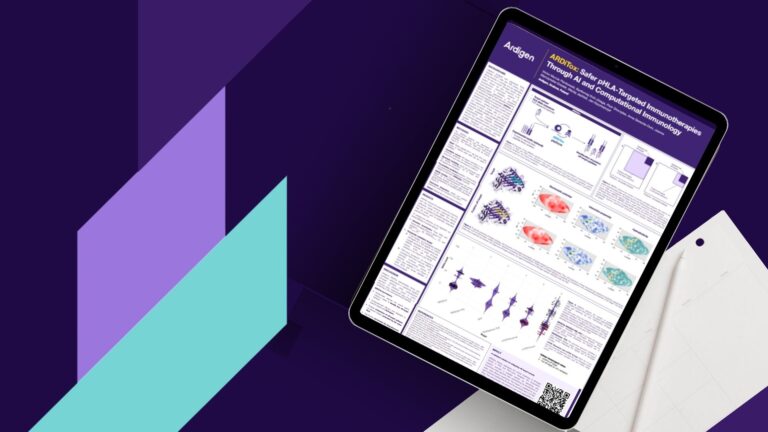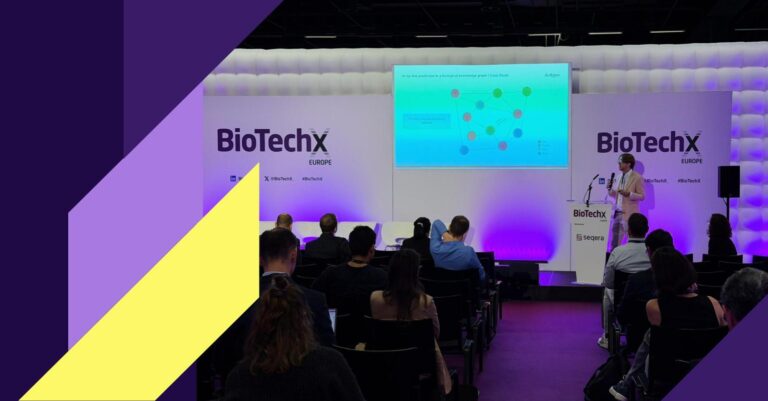Last week, Ardigen had the pleasure of participating in the Precision Medicine World Conference (PMWC) 2025, the largest and original forum on precision medicine, which took place on February 5-9 in Silicone Valley, CA. The conference featured world-renowned experts and visionary speakers, including Carolyn Bertozzi, the 2022 laureate of the Nobel Prize in Chemistry for her groundbreaking work on click chemistry.
The conference featured four thematic presentation tracks and two showcase tracks, including a special track dedicated to AI Models and Clinical Applications. Many of the discussions, not only in this track but in others as well, centered around the transformation of biotech and pharma through AI, automation, and computational advancements. For example, the AI tools for improving patient outcomes featured prominently in the Oncology Applications Track, with talks like “Advancing Patient-Centered Outcomes with AI and Real-World Data Integration” by Phil Johnson, Chief Commercial Officer at Evidation Health.
AI’s expanding role in precision medicine
On the first day of the conference, we made sure not to miss a panel titled “Shared Opportunities to Unlock AI’s Potential in R&D”. The panel brought together Carlyn Crisostomo (VP and Head Technology Innovation Lab at Amgen) Bill Mayo (SVP Research IT at Bristol Myers Squibb), and Stacie Calad-Thomson (BD Lead Healthcare and Life Sciences at Nvidia). It was chaired by Brice Sarver (Director of ZS Discovery at ZS).
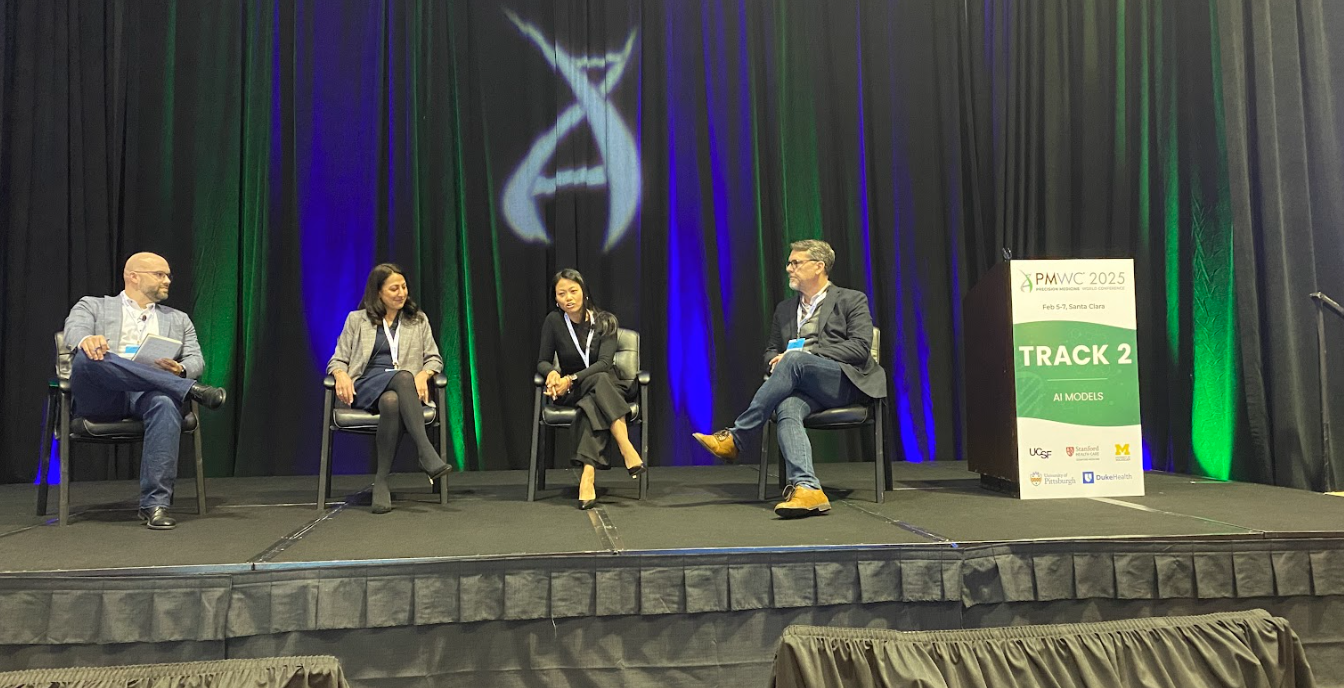
The panelists discussed the future of precision medicine, as the industry moves toward a more integrated, AI-driven future. Specifically, they gave examples from their own professional experience on how breaking down silos between wet lab and dry lab, leveraging AI in drug discovery and clinical trials, and improving compute efficiency are accelerating innovation in the industry. The panelists highlighted the shift towards autonomous science, AI-enabled healthcare agents, and the need to rethink traditional R&D and manufacturing processes to fully harness emerging technologies.
One of the main conclusions of the panel discussion was that companies that invest in AI and rethink traditional pharma operations will lead the next wave of biotech innovation. Stacie Calad-Thomson highlighted the remarkable progress achieved by Nvidia in driving down compute costs by a million-fold over a decade. With the decrease in computing costs, biotech and pharma can scale up AI-powered research, shifting towards autonomous science, where AI generates hypotheses, robotic labs conduct experiments and humans oversee them. This ambitious vision would enable continuous, data-driven optimization in drug discovery and development.
Precision cancer diagnostics with rapid NGS
On Day 1 of the conference, Luca Quagliata, the Vice President and Global Head of Medical Affairs for Thermo Fisher’s Clinical Sequencing and Oncology Division, and Ibiayi Dagogo-Jack, an oncologist at Massachusetts General Hospital and Assistant Professor of Medicine at Harvard Medical School, led a joint session titled “Ultra-Rapid NGS Testing: Why Time Matters.”
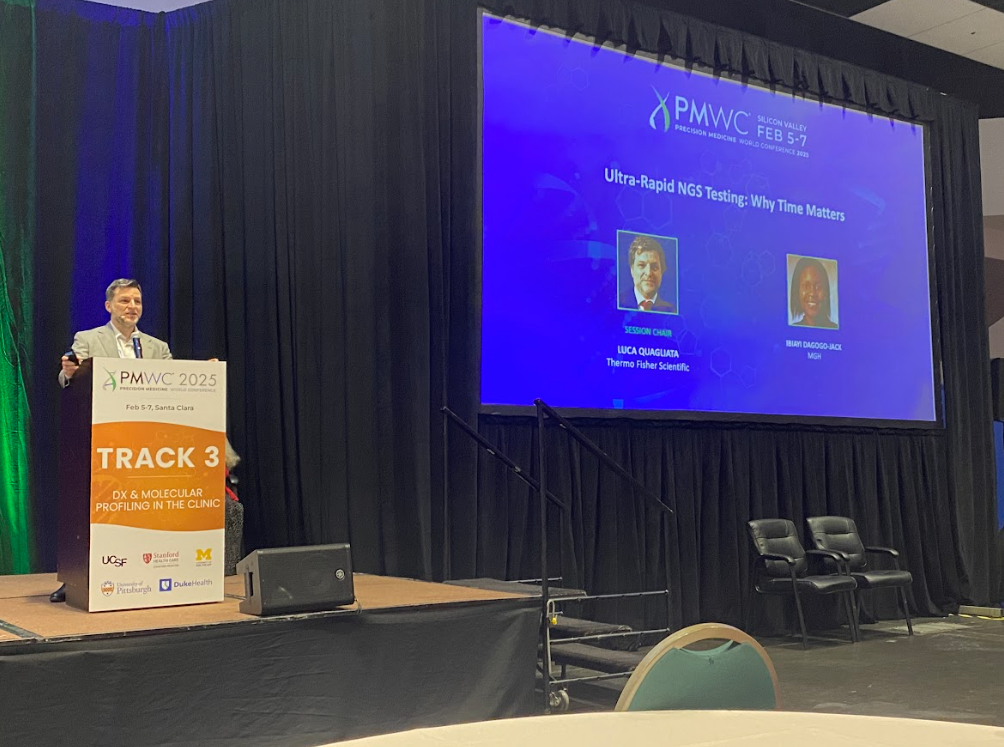
Luca Quagliata highlighted key oncology trends for 2025, including combination therapies, early-stage treatments, and less invasive diagnostics. In his opinion, implementing precision medicine in practice still remains a challenge today due to a lack of reliable biomarkers for determining the patient’s individual treatments plan. He emphasized the need for a strong diagnostic network to reduce the current 22-day diagnosis time to be able to start patients on personalized treatments faster to improve survival.
To achieve this, diagnostic technologies themselves must be faster, require less input material, and provide comprehensive, multi-marker profiling. Since whole-genome sequencing isn’t yet viable, a targeted NGS approach is needed. Quagliata advocated for decentralized NGS solutions—like point-of-care diagnostics—to streamline patient stratification and treatment decisions.
Quagliata’s talk was followed by a presentation by Ibiayi Dagogo-Jack, a thoracic oncologist at Massachusetts General Hospital and an Assistant Professor of Medicine at Harvard Medical School, who specializes in the treatment of lung cancer, with a focus on advanced disease, targeted therapies, and immunotherapies. She discussed the critical role of next-generation sequencing (NGS) in selecting the most effective targeted treatments for lung cancer, particularly non-small cell lung cancer (NSCLC).
Dr. Dagogo-Jack discussed the evolution of precision medicine in oncology, emphasizing how molecular testing has transformed lung cancer from a monolithic disease into distinct molecular subtypes, each with unique therapeutic and prognostic implications. She presented real-world case studies demonstrating the success of comprehensive molecular testing for lung cancer improving treatment outcomes.
In the first case study, a patient with stage III lung cancer and a RET fusion. Knowing this early, allowed oncologists to prioritize chemotherapy over immunotherapy, optimizing the treatment plan. Case 2 featured a stage IV lung cancer patient with an EGFR mutation and TP53 co-mutation. In this case, rapid NGS helped intensify treatment with a combination of chemotherapy and targeted therapy, leading to improved outcomes.
Real-world data and patient-centered treatment
The highlight on Day 2 was a presentation by Phil Johnson, Chief Commercial Officer at Evidation Health on “Advancing Patient-Centered Outcomes with AI and Real-World Data Integration”. This session revolved around the use of real-world data collected directly from individuals, through surveys and wearables, combined with conventional data sources for improving drug safety and tolerance.
The speaker emphasized the importance of balancing drug efficacy with minimizing toxicity. To do this, researchers are incorporating biomarkers, gene expression data, imaging markers, and patient-reported outcomes to assess drug tolerability and predict serious adverse events. For example, the I-SPY 2 trial, involving 3,000 high-risk early-stage cancer patients across 30 sites, is using an adaptive approach to identify effective treatments while reducing harmful side effects. A key measure of this is pathologic complete response (PCR), where no residual tumor remains, indicating better survival outcomes.
This session highlighted the growing role of patient voices in treatment decisions, with data showing that engaged patients have better outcomes. AI and machine learning are being used to analyze patient-reported symptoms, clinician-documented adverse events, and genetic markers to predict toxicity risks and optimize treatment strategies. The goal is to integrate biological, physiological, and real-world patient data to improve drug selection, minimize unnecessary toxicities, and enhance overall healthcare value.
Breaking barriers in precision medicine
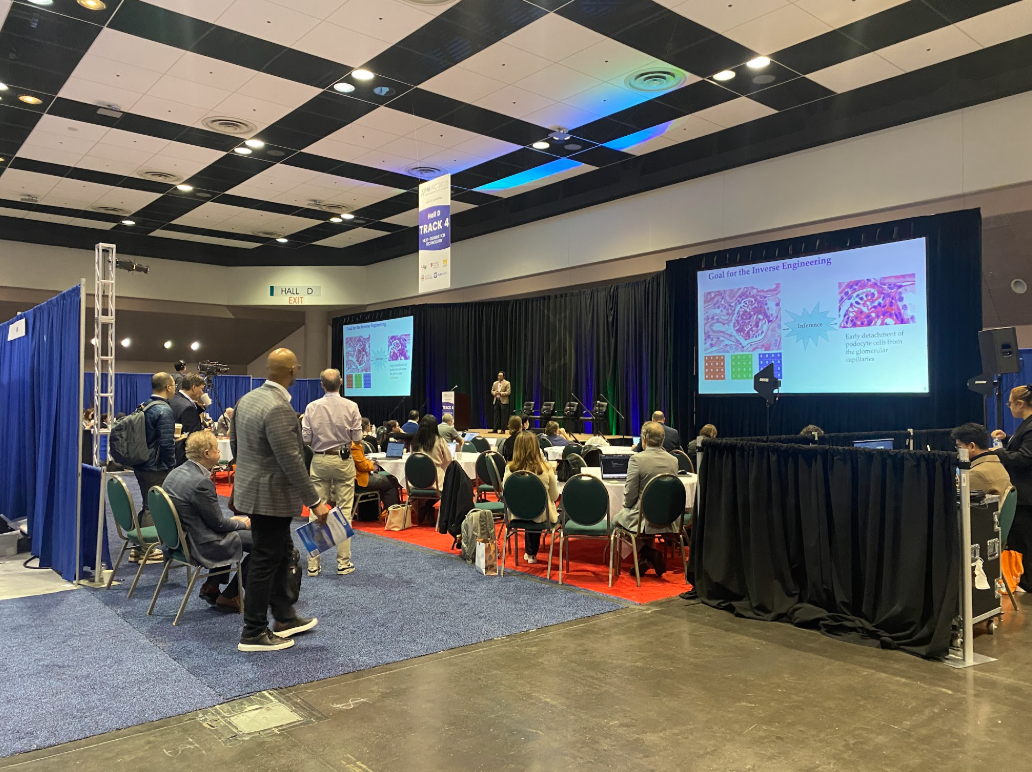
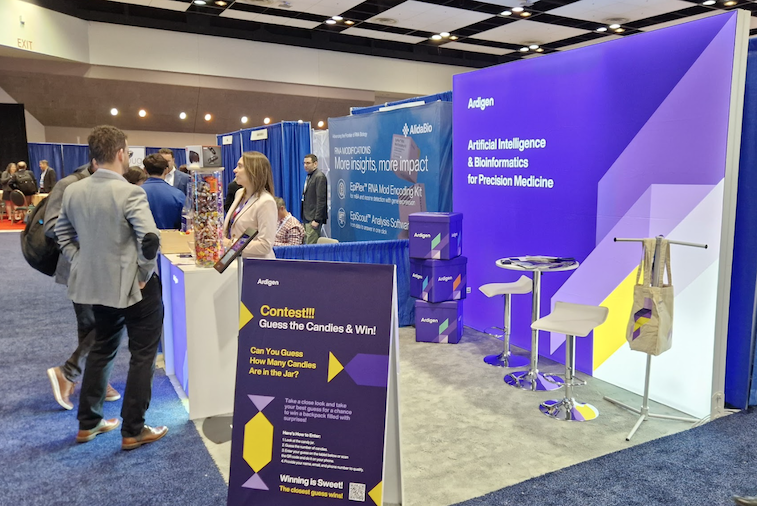
PMWC 2025 reinforced just how rapidly AI and advanced bioinformatics are shaping the future of precision medicine. For instance, the growing adoption of diagnostic NGS assays in precision oncology has already been demonstrated to significantly reduce time needed to the start patients on personalized treatment plans and improve survival rates. This marks a major leap forward in personalized medicine: empowering clinicians with faster, data-driven treatment decisions that improve patient outcomes.
More broadly, the conference underscored three key themes: patient-centered, personalized treatment approaches, AI-driven transformation in biotech and pharma, and the importance of breaking down research silos. At Ardigen, we are committed to exactly that—bridging the gaps between data, science, and technology to accelerate drug discovery. If you’re looking for partners in innovation who can provide cutting-edge bioinformatics and AI expertise, reach out to us!
